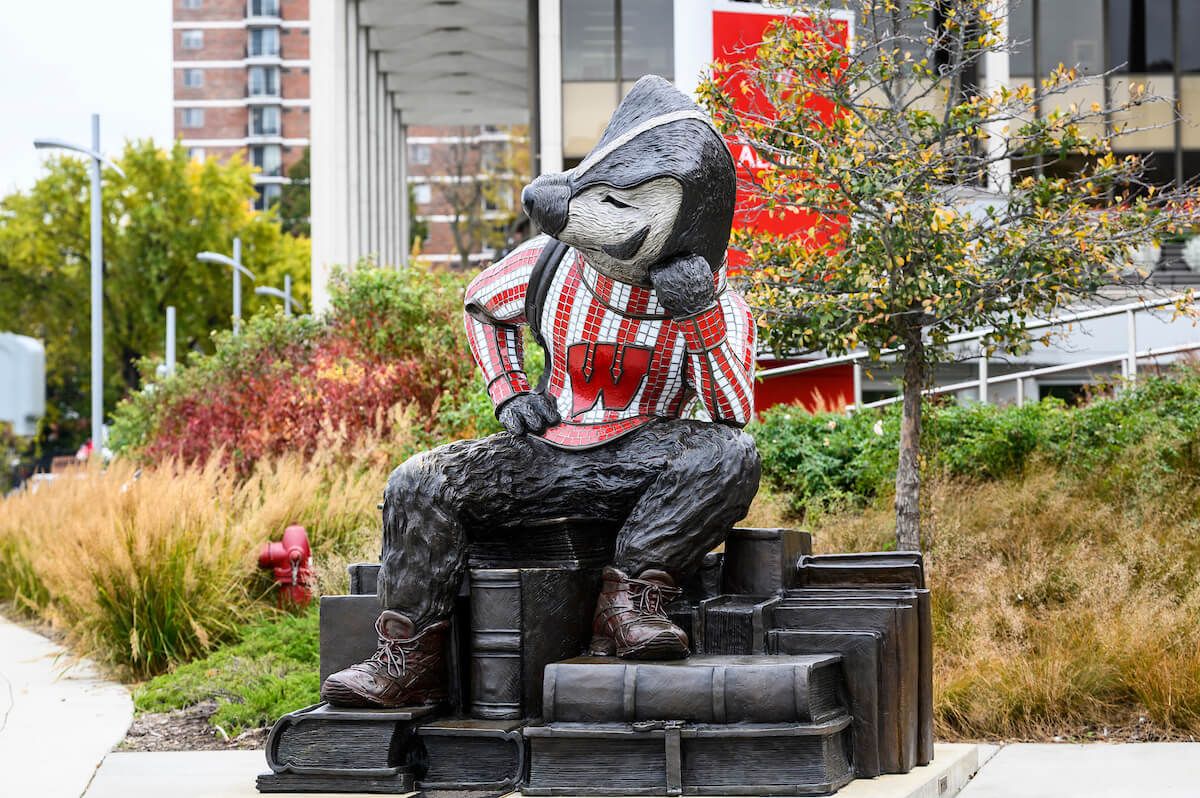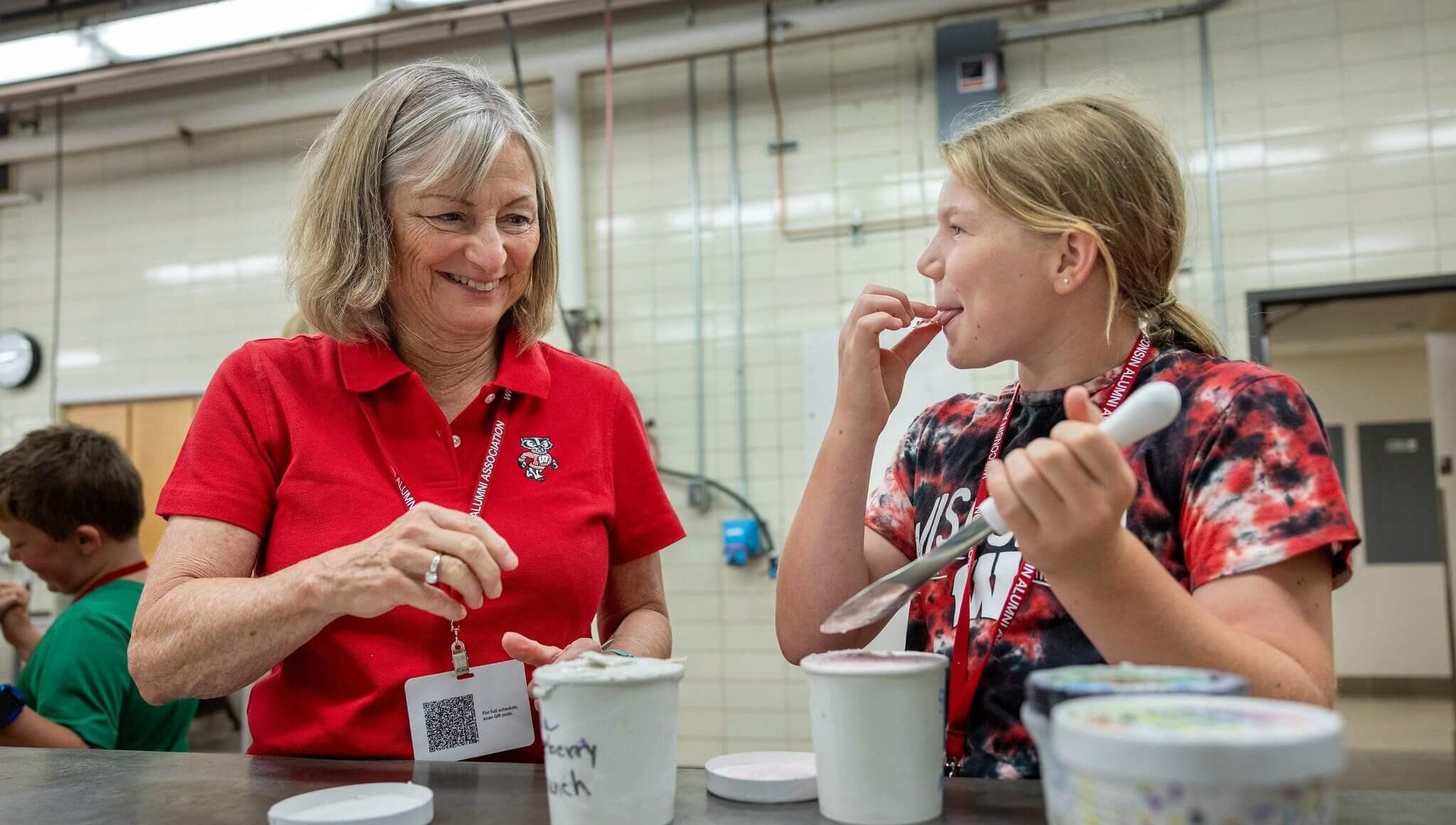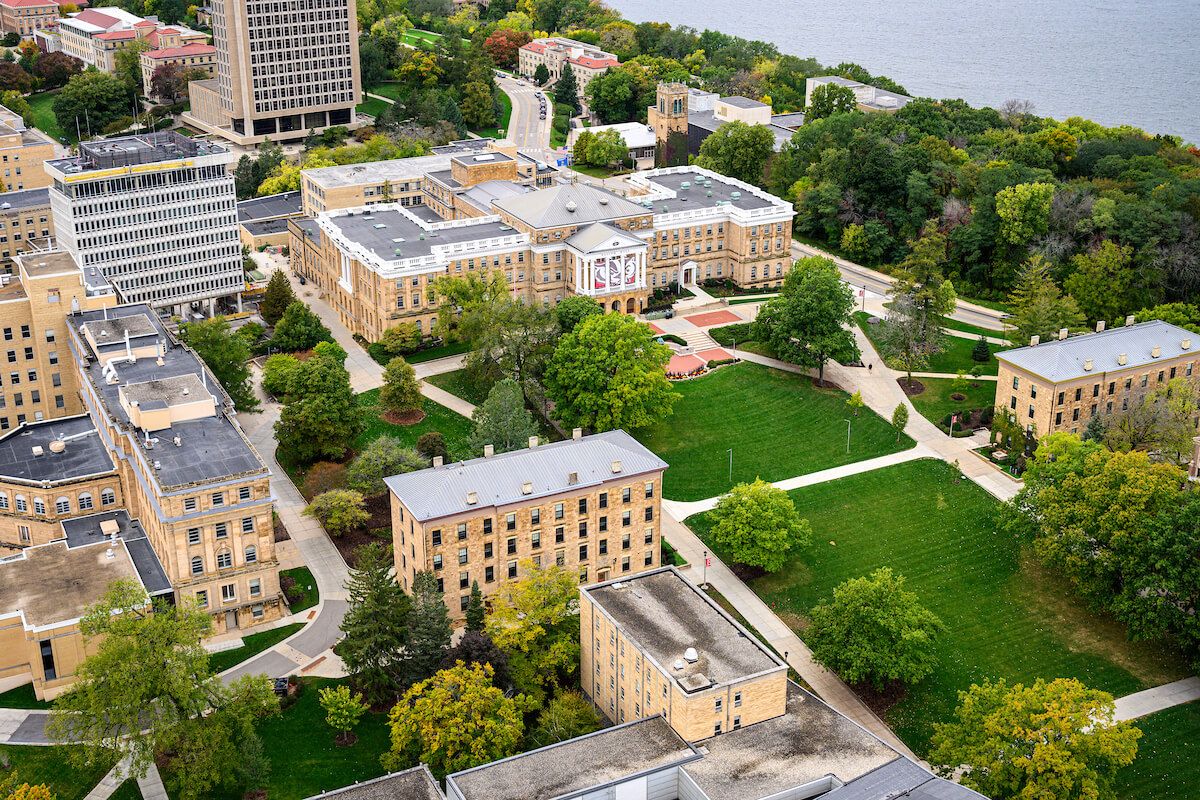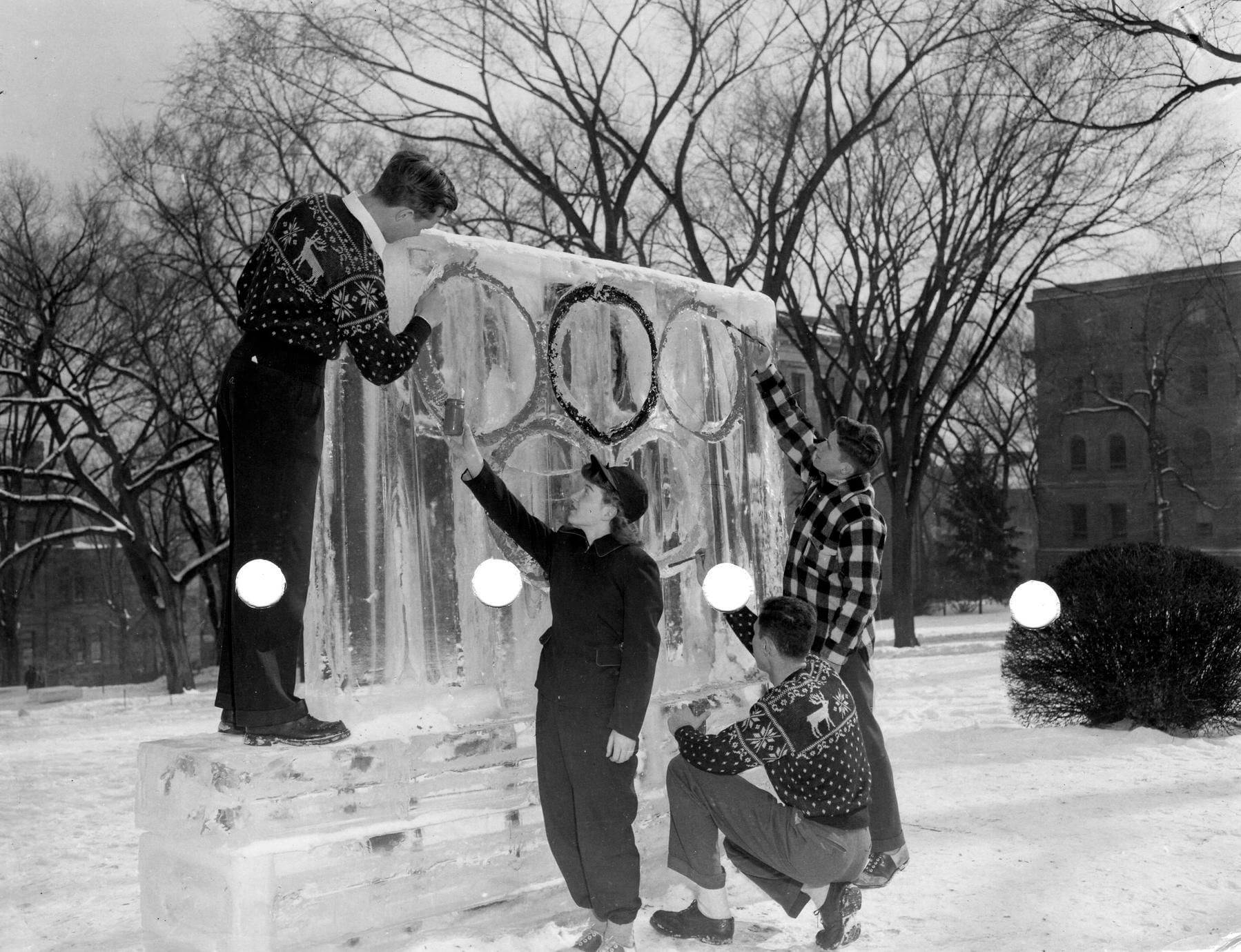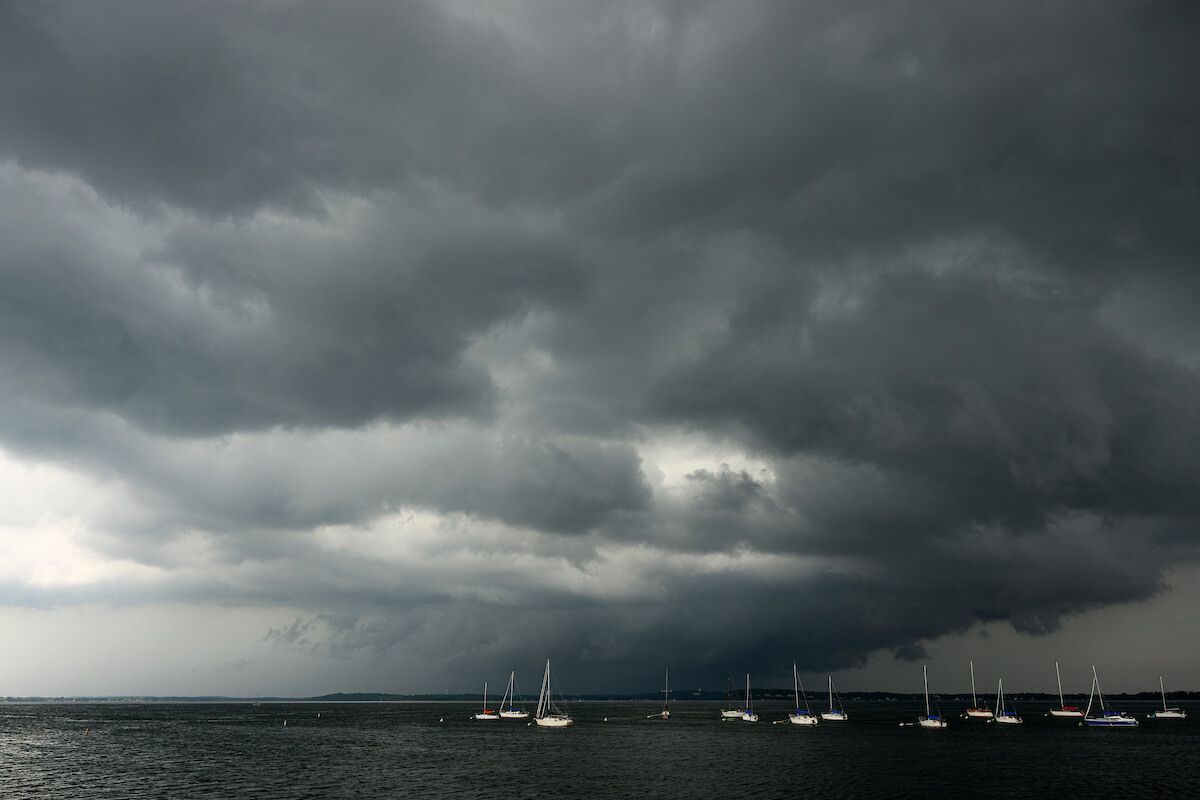The future of solar energy is bright, thanks to leaders like Raisa Lee ’09. Lee is a senior director of project development with Clearway Energy, one of the top five domestic renewables developers providing clean energy all over the United States. In her role, Lee oversees the years-long efforts to build solar energy and storage projects in the West, from policy and permitting to “putting steel in the ground” and flipping the final switch to deliver clean, reliable energy. It’s a kindness to their customers and a kindness to the planet, which makes it the perfect job for Lee.
“The call to the greater good has definitely been a through line for me,” she says. “I felt like renewable projects were a great way to apply that greater good through line within an engineering context.”
As an undergraduate at the UW, Lee sought many opportunities to give back to her community while working for the Multicultural Student Center and also serving as a live-in multicultural resident consultant with University Housing. The skills that made Lee successful in these positions have served her well in her career in engineering and solar development.
“I thought all engineering degrees were for the smartest kid in the math class,” she says. “To hear that there was an interest and value in soft skills — communication skills and the ability to organize people around common goals — was really thrilling and encouraging.”
It was also at the UW that Lee learned she could marry her passions for service and the environment with a career as an engineer. During an internship attained through a Department of Civil and Environmental Engineering career fair, she became a certified Leadership in Energy and Environmental Design Accredited Professional (LEED-AP). This credential allows professionals to determine whether a building meets eco-friendly Green Building standards. After graduation, she used these skills while volunteering with a local environmental organization to help determine the LEED ratings of buildings around Madison, including the then-in-progress Wisconsin Institutes for Discovery.
A résumé decorated with leadership accolades and environmental endeavors led to a career in engineering and development for a cleaner and greener world. Her first job out of college was with the engineering firm Arcadis (formerly Malcolm Pirnie). She joined the solar energy sector through the SunPower Corporation as a project and development engineer before transitioning to utility-scale development with Clearway Energy Group. To date, Lee has deployed more than three gigawatts of clean energy — nearly four million horsepower, or enough to power 100 million LED lightbulbs — throughout her career.
“I think what’s also exciting is there’s still so much to be discovered and invented,” Lee says of her line of work. “Battery storage is a new frontier that will only gain in importance as more renewable projects come online. For a reliable grid, you’ve got to be able to store energy to use later, when it’s needed most, while also developing wind and solar energy to generate power. … There’s just so much invention that can still happen in an industry that’s critically important for the battle [against] climate change.”
For her demonstrated success and fierce dedication to this cause, Lee was awarded the 2023 Business Award from the Clean Energy Education and Empowerment (C3E) Initiative, a program led by the U.S. Department of Energy (DOE) in collaboration with the Massachusetts Institute of Technology Energy Initiative, Stanford Energy, and the Texas A&M Energy Institute to increase the participation, leadership, and recognition of women in clean energy fields.
“The founders of [C3E] realized diverse perspectives are required to address complex problems quickly, especially in the context of climate change. We can’t sit idly because it is so serious and so impactful, and we’re at a critical moment” Lee says. “C3E and the DOE really saw value in finding a space for women to engage together [and creating] a platform to celebrate women who were contributing to clean-energy industries, because in order to solve big problems like climate change, we have to have all hands on deck. You need diversity, including women, [in order] to solve these complicated and urgent problems.”
For all the obstacles and challenges yet to overcome in pursuit of a green-powered planet, Lee remains optimistic, thanks in large part to the incoming generation of environmentally savvy engineers.
“[It’s exciting] seeing how committed this next generation is, [those] who are coming out of school now with degrees in things like wind development or sustainable design. There are so many more programs now that recognize the value of focusing on clean energy academically,” she says. “And degree aside, just the passion and the awareness that this new generation brings — that this is a dire problem we have to solve as opposed to [just] a career choice — is really exciting.”
Like Lee, this generation certainly doesn’t have to wait until graduation to see their prospective careers in practice. This is especially true at the UW, where solar energy projects are already cropping up around a campus that currently boasts 15 LEED-certified buildings.
E-Little Free Libraries
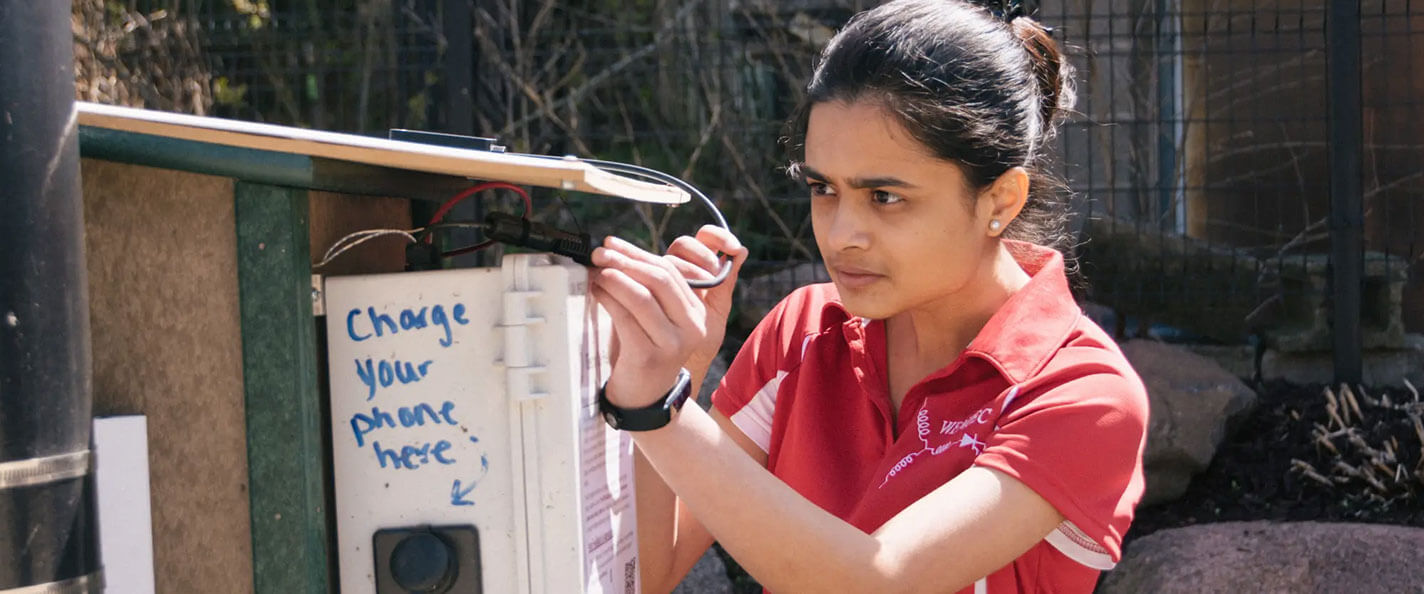
Students in the UW’s College of Engineering developed e-Little Free Libraries — kiosks that typically house collections of free, donated books — that also serve as solar-powered charging stations. Photo by Jason Daley, College of Engineering.
Solar-Powered Bus Stops
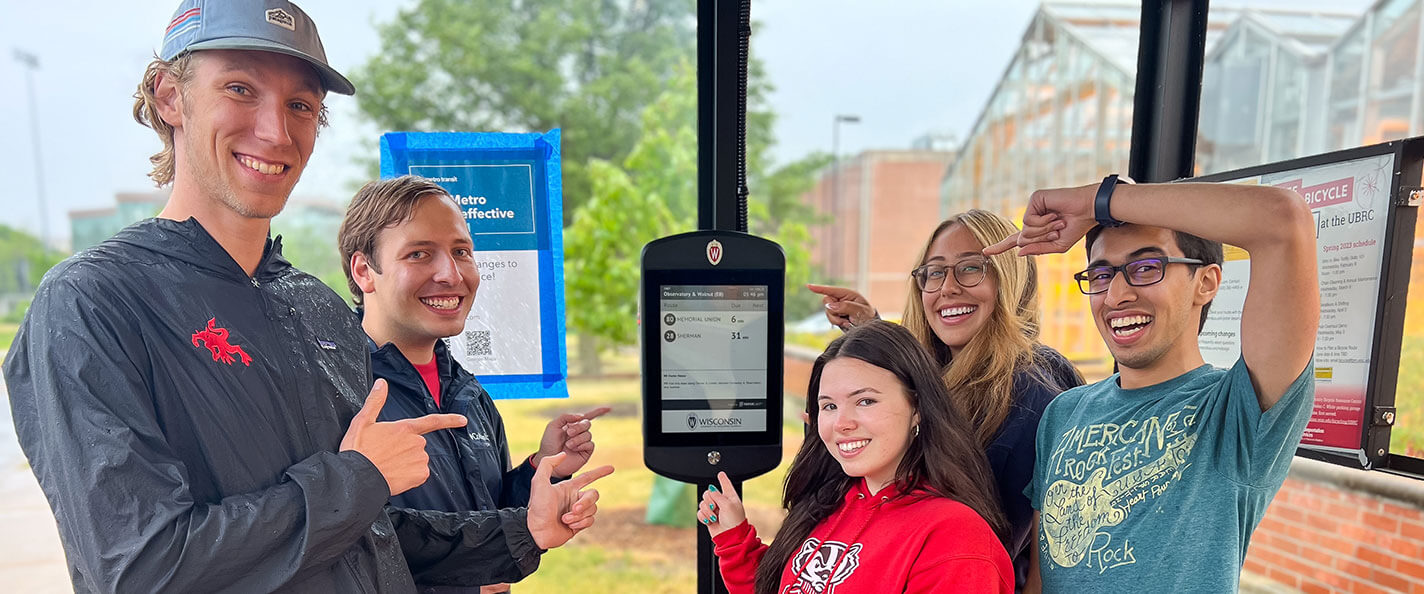
UW student organizations Enactus and Helios teamed up to renovate campus bus stops to feature real-time, live schedules and lighting powered by solar panels atop the structures. Photo by Lauren Graves, Office of Sustainability.
Gordon's Green Roof
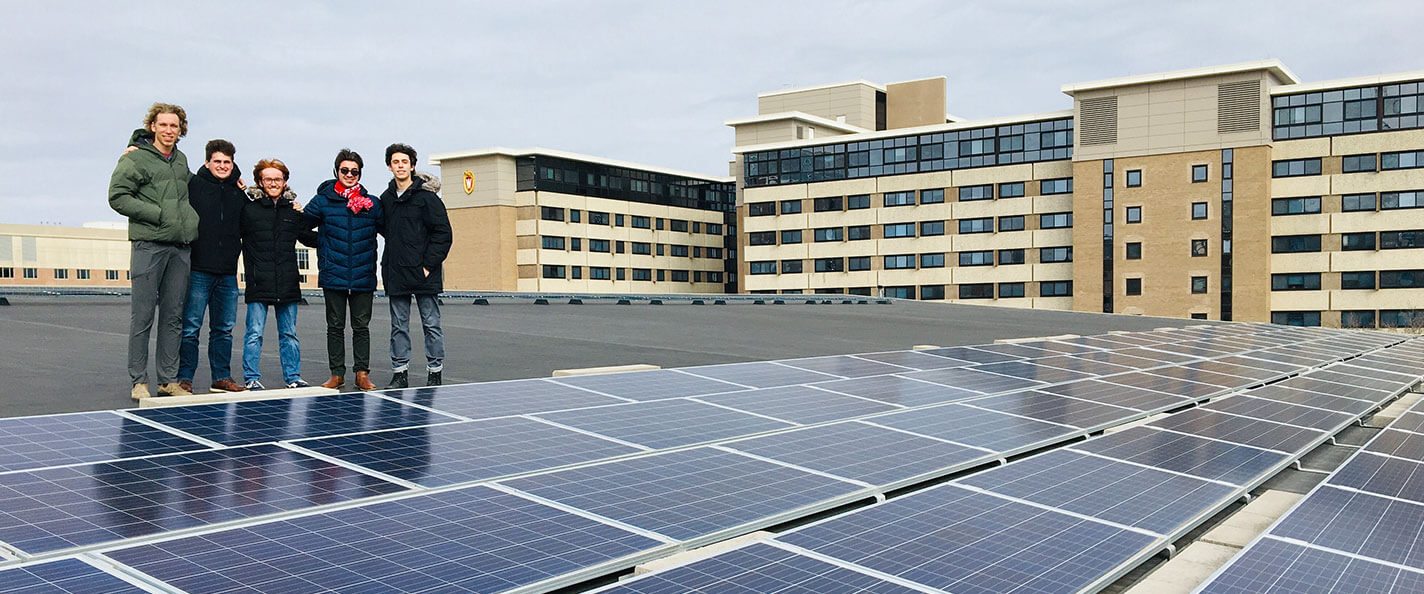
In 2019, the Gordon Dining and Event Center received an eco-friendly upgrade with its rooftop solar array. This dashboard tracks the production of the panels’ solar energy in real time. Photo by Joel Ninmann, University Housing.
O'Brien Solar Fields
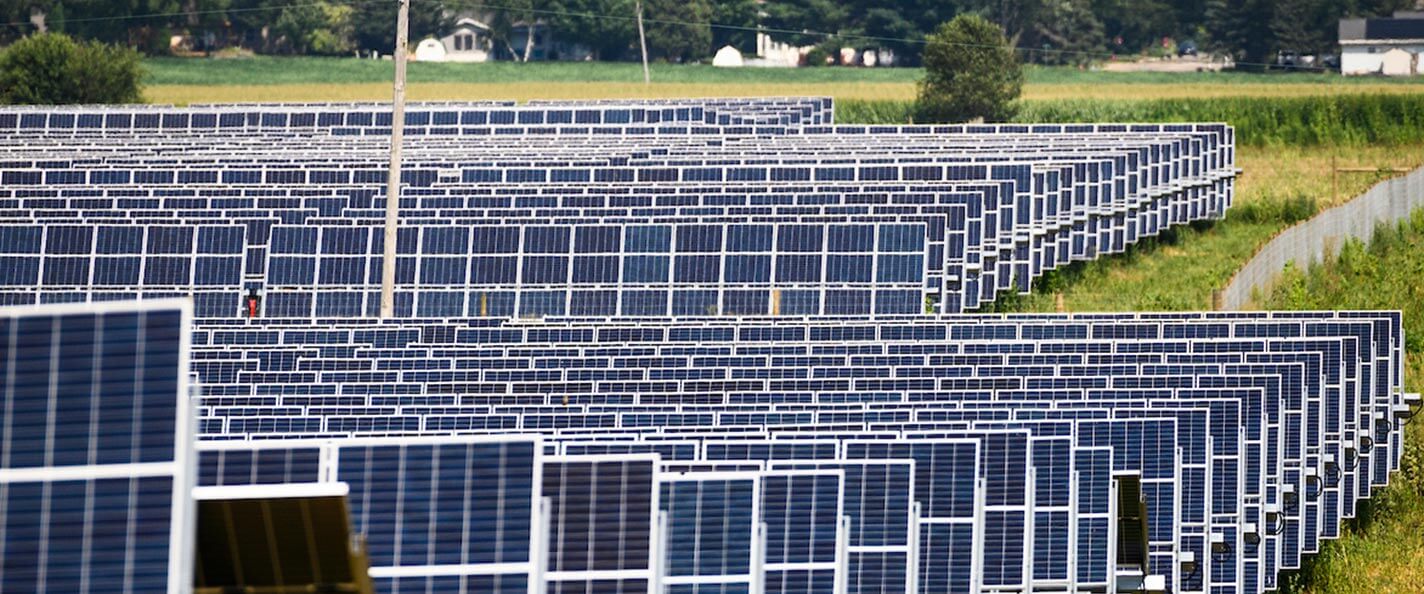
The UW partnered with several Dane County businesses to develop the largest solar installation in Dane County: the O’Brien Solar Fields. The 60,318 bifacial panels provide 20 megawatts of clean energy to the local community and are projected to do so for at least 30 years. Photo by Jeff Miller, University Communications.
UW–Madison Kegonsa Research Campus
In partnership with Alliant Energy, the UW is planning a small-scale solar project at the UW’s Kegonsa Research Campus near Stoughton, Wisconsin. The project would generate enough energy to power more than 450 homes.

